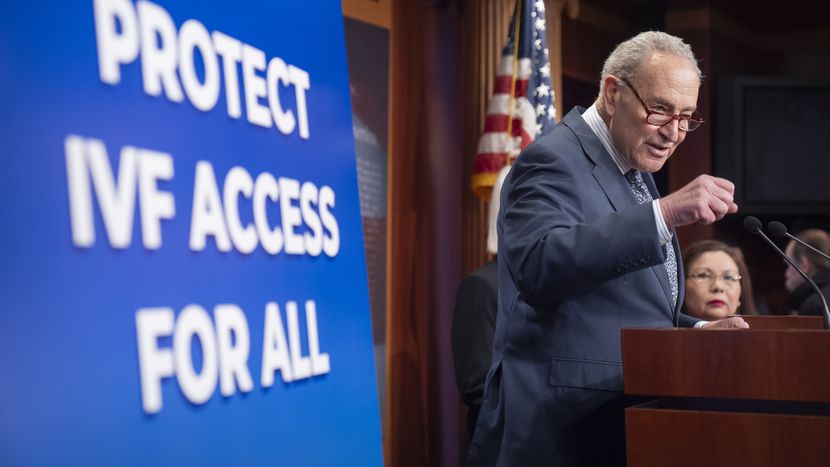WASHINGTON — Following recent doubts about the future of in-vitro fertilization (IVF), many Texas Republicans have openly embraced this reproductive technology. However, Democrats have questioned the sincerity of their support, highlighting the GOP’s endorsement of a bill that asserts life commences at conception.
In a memorandum, White House Press Secretary Karine Jean-Pierre criticized the Life at Conception Act, labeling it as an “extreme, dangerous bill” that could enshrine Alabama’s current restrictive reproductive laws nationwide. Specifically, she called out over 120 GOP House members who are backing this legislation.
Jean-Pierre stated, “Republican officials may try to obscure their backing of these radical policies, but their true stance is unequivocally documented. No amount of spin can alter that fact.”
Several Texas Republicans who have endorsed the bill have refuted claims that it would impede IVF. Nonetheless, the party faces challenges in formulating a unified approach to safeguard embryos conceived through this method.
In Alabama, the Supreme Court’s ruling equating frozen embryos from IVF to legal children has led to some clinics pausing IVF procedures due to potential legal repercussions.
The Life at Conception Act of 2023 defines a human being as any individual of the species Homo sapiens at all developmental stages, including fertilization or other points of origin. While it includes a provision exempting women from prosecution for fetal demise, it lacks specific safeguards for IVF.
Critics argue that without explicit protections for IVF, the bill could effectively restrict this fertility treatment, given that it often involves the creation of non-viable or unused embryos.
While some advocacy groups have raised concerns about excessive measures to safeguard IVF, others believe it is possible to uphold the sanctity of human embryos while preserving access to IVF.
Among the Texas Republican co-sponsors of the Life at Conception Act, U.S. Rep. Beth Van Duyne voiced strong support for IVF, emphasizing the importance of legislative clarity following the Roe v. Wade decision’s reversal.
Van Duyne stressed the need for a balanced approach, asserting that the bill aims to elucidate the 14th Amendment without intending to criminalize IVF.
In interviews, Texas Republicans supporting the bill, including U.S. Reps. Nathaniel Moran, August Pfluger, Wesley Hunt, and others, reaffirmed their backing for IVF. They emphasized that being pro-life aligns with supporting IVF, dismissing Democratic attempts to divert attention from other pressing issues.
U.S. Sen. Tammy Duckworth sought unanimous consent for a bill safeguarding IVF access, encountering opposition from Sen. Cindy Hyde-Smith, who deemed it an overreach. Senators John Cornyn and Ted Cruz of Texas endorsed IVF while underscoring states’ jurisdiction in addressing related concerns.
In response to criticism from opponents like U.S. Rep. Colin Allred, Cruz reiterated his support for IVF, emphasizing its role in helping families conceive children and expressing hope for continued state-level protection of this reproductive option.
